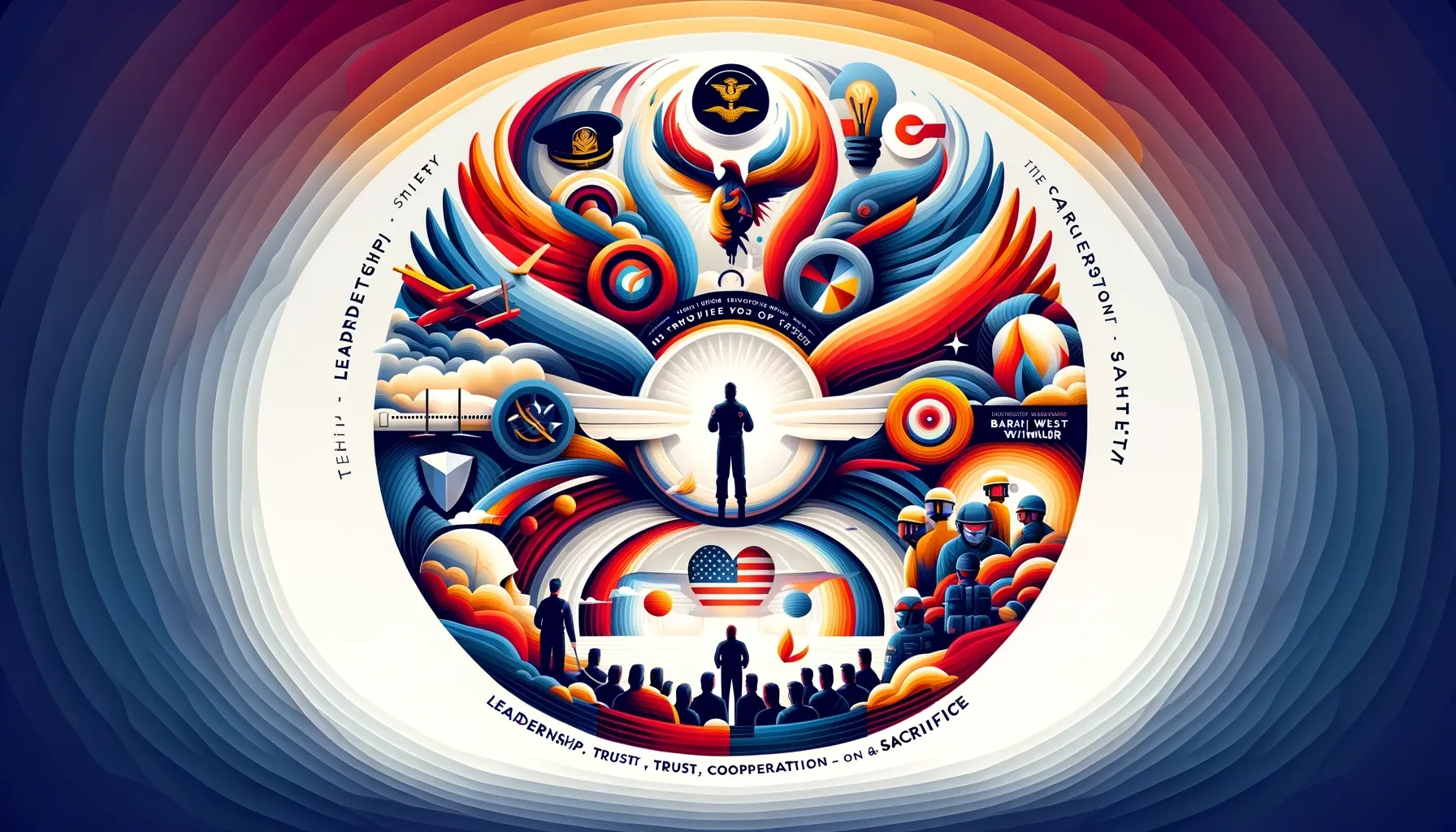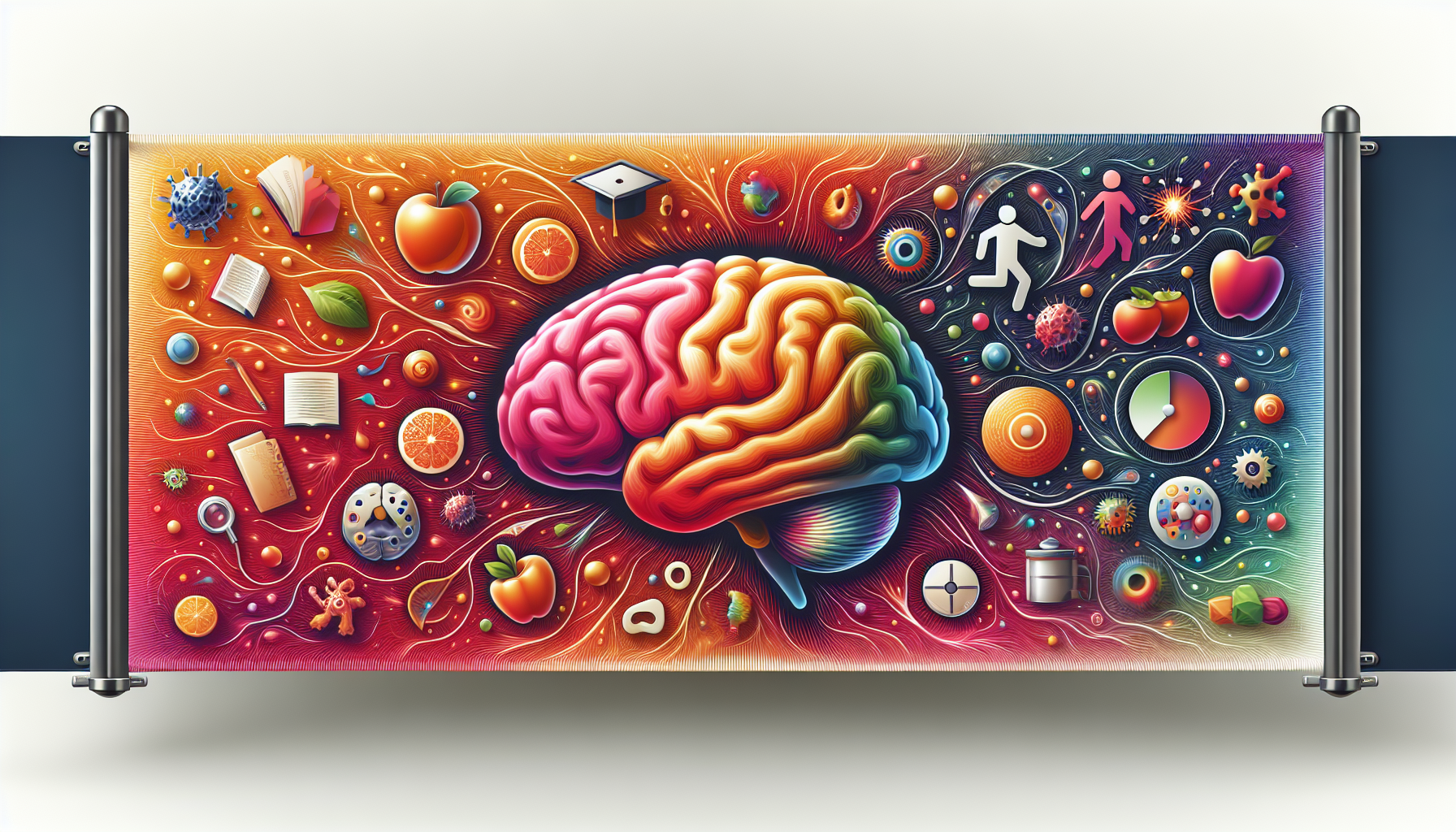On this page
Adam Grant's TED talk explores the habits of 'originals', nonconformists who drive creativity and change. He delves into the unconventional success of Warby Parker, a company that disrupted the eyewear industry by selling glasses online. The speaker also discusses the concept of procrastination, arguing that it can be a virtue for creativity, as seen in historical figures like Leonardo da Vinci and Martin Luther King Jr. He debunks the myth of the first-mover advantage, showing that being different and better is more important than being first. The speaker examines the mindset of originals, who face doubts and fears but manage these feelings differently, and how their choice of internet browser can reflect this mindset. He introduces the concept of 'vuja de', seeing familiar things with fresh eyes, and discusses the importance of trying despite the fear of failure.
How does it apply to you?
This Ted talk can be used as a guide to understand and cultivate habits that foster original thinking and creativity. It can inspire students, entrepreneurs, and anyone interested in innovation to embrace their unique ideas, manage their doubts, and take action despite their fears.
Applied Learning to Developer Enablement
The content can be applied in several ways to a software development organization or in the context of learning about software development:
- Risk-taking and Innovation: The story of Warby Parker can inspire software developers to take risks and disrupt industries. Even when faced with uncertainties and potential failure, taking a leap of faith can lead to surprising success.
- Importance of Originality: The definition of 'originals' can encourage developers to voice out unique ideas and champion them, driving creativity and innovation in the team or organization.
- Procrastination and Creativity: The analysis and personal experience with procrastination can help developers understand that delays are not always negative. Taking some time away from a task can lead to fresh perspectives and innovative solutions.
- Value of Improvement: The myth of the first-mover advantage emphasizes that being the first to introduce a product or idea is not necessarily beneficial. Instead, improving on an existing idea can lead to success. This can be applied to software development where refining and enhancing existing code or software can be more valuable than creating something entirely new.
- Handling Doubts: The section on doubts of originals provides insight on how to handle doubts in a productive manner. It encourages developers to focus on improving ideas rather than doubting their capabilities.
- Questioning the Default: The impact of internet browser choice highlights the importance of questioning the default and seeking better options. This can be applied to software development in terms of choosing the best tools, languages, or methodologies for a project.
- Fresh Perspective: The concept of Vuja De encourages developers to look at familiar situations from a new perspective. This can lead to original ideas and improvements in software development.
- Fear of Inaction: The section on fear and originality emphasizes that the fear of not trying should outweigh the fear of failure. This can motivate developers to take on challenging projects and learn new skills.
- Importance of Trying: Lastly, the importance of trying can inspire developers to explore new ideas and take risks, recognizing that failure is a part of the learning process.
Developer Checklist
Idea Generation and Execution
Summary
Introduction and Background of Warby Parker
Seven years ago, the speaker was approached by a student who wanted him to invest in his company, Warby Parker, which aimed to disrupt an industry by selling glasses online. Despite their lack of a functioning website even a day before launch and the fact that they had all lined up backup jobs, the company went on to be recognized as the world's most innovative company and valued at over a billion dollars.
Definition of Originals
The speaker has been studying a group of people he refers to as 'originals'. These are nonconformists who not only come up with new ideas but also take action to champion them. They are the people who stand out and speak up, driving creativity and change in the world. They are the people you want to bet on.
Analysis of Procrastination
The speaker discusses the concept of procrastination and its impact on creativity. He shares an anecdote about a student who claimed to have her most creative ideas while procrastinating. To test this idea, the student conducted a study and found that people who procrastinate moderately are rated as more creative than those who do everything early or at the last minute. The speaker also shares his own experiments which confirm this finding.
Personal Experience with Procrastination
The speaker shares his personal journey of teaching himself to procrastinate while writing a chapter on procrastination. He found the process to be agonizing, but when he returned to the task after months, he had new ideas and perspectives.
The Value of Procrastination
Procrastination is often seen as a vice for productivity, but it can be a virtue for creativity. Historical figures such as Leonardo da Vinci and Martin Luther King Jr. were known procrastinators who used this delay to their advantage. Da Vinci's diversions in optics transformed his painting style, while King's last-minute changes to his 'I Have a Dream' speech allowed him to improvise and create a powerful moment in history. Procrastination allowed these figures to keep their ideas flexible and open to changes until the last moment.
The Myth of the First-Mover Advantage
Being the first to introduce a product or idea is not necessarily an advantage. In fact, a study of over 50 product categories showed that first movers had a failure rate of 47 percent, compared to only 8 percent for those who improved on an existing idea. Facebook and Google, for instance, were not the first in their fields, but they managed to provide something different and better. Thus, to be original, you don't have to be first, you just need to be different and better.
The Doubts of Originals
Original people often face doubts and fears, but they manage these feelings differently. Two types of doubt exist: self-doubt and idea doubt. Self-doubt is paralyzing and leads to inaction, whereas idea doubt is energizing and leads to testing, experimentation, and refinement. Originals avoid jumping from idea doubt to self-doubt, instead acknowledging that the first few drafts of any idea or project are usually imperfect, and improvement is always possible.
The Impact of Internet Browser Choice
The choice of internet browser can predict job performance and commitment. Firefox and Chrome users tend to outperform Internet Explorer and Safari users, not because of technical advantages, but because of the mindset reflected in their choice. Internet Explorer and Safari come preinstalled on computers, and using them suggests acceptance of the default option. In contrast, Firefox and Chrome users demonstrate initiative and resourcefulness by choosing to download a new browser. This willingness to question the default and seek better options is indicative of a mindset that can foster originality and success.
The Concept of Vuja De
Vuja de is the experience of seeing something familiar with fresh eyes. It involves questioning the status quo and looking at familiar situations from a new perspective. This mindset can lead to original ideas and improvements on existing concepts.
Reinvention of the villain as a tortured hero
The villain is reinvented as a tortured hero, which led to the immense success of the animated movie Frozen. The takeaway from this is that when you encounter doubt, you should not ignore it or 'let it go'. This topic begins at timestamp (11:38).
Fear and originality
Original thinkers also experience fear, particularly the fear of failure. However, what distinguishes them is an even greater fear of not trying at all. They understand that failure can result from starting a venture that eventually goes bankrupt or from not starting a venture at all. The regret of inaction, or missed opportunities, often weighs heavier in the long run. This segment starts at timestamp (11:53).
The importance of trying
Innovative individuals, like Elon Musk, recognize the importance of trying, even in the face of expected failure. Many people, however, fail to act on their significant ideas out of fear of judgment or failure. This portion of the content begins at timestamp (12:21).
The value of bad ideas
Original thinkers have a lot of bad ideas along the way to generating good ones. For instance, Thomas Edison, known for inventing the light bulb, also came up with a number of failed inventions. In various fields, the most original individuals are often those who fail the most, as they are the ones who try the most. This topic begins at timestamp (12:43).
The importance of generating more ideas
The more ideas one generates, the higher the chances of stumbling upon something truly original. Even classical music icons like Bach, Beethoven, and Mozart had to generate hundreds of compositions to create a smaller number of masterpieces. For most people, being more original requires generating more ideas. This part of the content starts at timestamp (13:28).
Characteristics of originals
Original thinkers are not vastly different from others. They experience fear, doubt, and procrastination, and they have bad ideas. Sometimes, it is these very qualities that lead to their success. Recognize that being quick to start but slow to finish can boost creativity. Embrace the fear of failing to try and understand that a lot of bad ideas are needed to get a few good ones. This segment begins at timestamp (14:35).
FAQs
What is the background of Warby Parker? Seven years ago, a student approached the speaker with a proposition to invest in his company, Warby Parker. The company aimed to disrupt an industry by selling glasses online. Despite having no functioning website a day before launch and backup jobs lined up, the company was later recognized as the world's most innovative company and valued at over a billion dollars.
Who are 'originals' according to the speaker? Originals are nonconformists who not only come up with new ideas but also take action to champion them. They are the people who stand out and speak up, driving creativity and change in the world.
What is the speaker's view on procrastination? The speaker discusses that procrastination can actually have a positive impact on creativity. People who procrastinate moderately are rated as more creative than those who do everything early or at the last minute. This is confirmed by the speaker's own experiments.
What historical figures were known to procrastinate? Historical figures such as Leonardo da Vinci and Martin Luther King Jr. were known procrastinators who used this delay to their advantage.
What is the myth of the first-mover advantage? Being the first to introduce a product or idea is not necessarily an advantage. In fact, a study showed that first movers had a failure rate of 47 percent, compared to only 8 percent for those who improved on an existing idea. To be original, you don't have to be first, you just need to be different and better.
How do original people manage doubts and fears? Original people often face doubts and fears, but they manage these feelings differently. They avoid jumping from idea doubt to self-doubt, instead acknowledging that the first few drafts of any idea or project are usually imperfect, and improvement is always possible.
How does the choice of internet browser predict job performance and commitment? Firefox and Chrome users tend to outperform Internet Explorer and Safari users, not because of technical advantages, but because of the mindset reflected in their choice. This willingness to question the default and seek better options is indicative of a mindset that can foster originality and success.
What is Vuja De and how does it lead to original ideas? Vuja de is the experience of seeing something familiar with fresh eyes. It involves questioning the status quo and looking at familiar situations from a new perspective. This mindset can lead to original ideas and improvements on existing concepts.
What is the takeaway from the reinvention of the villain as a tortured hero in the movie Frozen? When you encounter doubt, you should not ignore it or 'let it go'.
How do original thinkers deal with fear? Original thinkers also experience fear, particularly the fear of failure. However, they fear not trying at all more. They understand that failure can result from starting a venture that eventually goes bankrupt or from not starting a venture at all. The regret of inaction, or missed opportunities, often weighs heavier in the long run.
What is the importance of trying according to innovative individuals like Elon Musk? Innovative individuals, like Elon Musk, recognize the importance of trying despite the fear of failure. They understand that the regret of inaction often weighs heavier in the long run.
Why do many people fail to act on their significant ideas? Many people fail to act on their significant ideas out of fear of judgment or failure.
What is the value of bad ideas? Original thinkers often have a lot of bad ideas along the way to generating good ones. In various fields, the most original individuals are often those who fail the most, as they are the ones who try the most.
Why is it important to generate more ideas? The more ideas one generates, the higher the chances of stumbling upon something truly original. For most people, being more original requires generating more ideas.
What are the characteristics of original thinkers? Original thinkers are not vastly different from others. They experience fear, doubt, and procrastination, and they have bad ideas. Sometimes, it is these very qualities that lead to their success. Being quick to start but slow to finish can boost creativity, and embracing the fear of failing to try and understanding that a lot of bad ideas are needed to get a few good ones.
Resources












